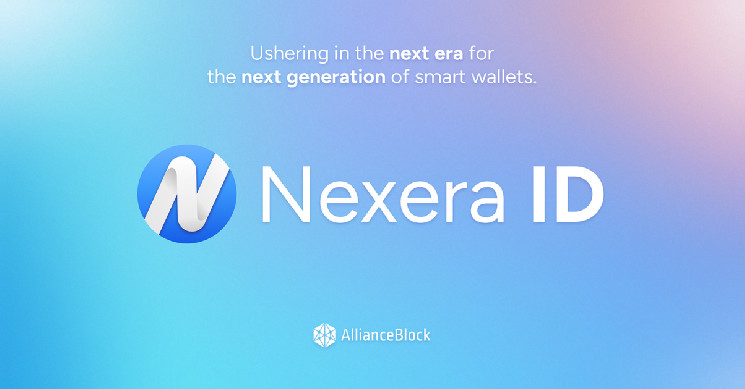AllianceBlock, a protocol designed to connect conventional finance (TradFi) and decentralized finance (DeFi) through a unified policy structure adhering to financial laws and regulations, along with its self-sovereign identity (SSI) issuance and validation solution, NexeraID, have become members of the World Wide Web Consortium (W3C).
W3C is a leading international web standards organization known for developing various digital foundational technologies like HTML and CSS. By coming together, the partnership will seek to streamline complex compliance workflows while safeguarding users’ identities and assets.
It is worth mentioning that over the last few years, the idea behind SSI’s has garnered a lot of momentum, largely due to the rising instances of digital data theft. To this point, in the United States alone, identity theft losses amounted to $502.5 billion in 2019, escalating to $712.4 billion in 2020. Meanwhile, in the United Kingdom, the annual value of identity thefts involving UK-issued debit and credit cards reached £29.7 million ($37 million approx.) in 2020.
Collaborating with W3C and Industry Leaders
NexeraID has already established itself in compliance with W3C standards for decentralized identifiers (DIDs) and verifiable credentials (VCs). As a member of W3C, NexeraID will actively collaborate with over 450 global leaders, including Microsoft, Apple, Ethereum Foundation, and Coinbase. This collaboration will foster the standardization of DIDs and VCs on the Web, enabling greater security and privacy for users and organizations across technological boundaries.
AllianceBlock CEO Rachid Ajaja expressed enthusiasm for the collaboration, stating: “We are extremely excited to be working with fellow W3C member organizations in the development of interoperable web standards, bringing expertise to help shape the principles of sovereign identity, which can only be done by collaborating with other industry leaders in these fields.”
Empowering Enterprises and Consumers with NexeraID
NexeraID offers a self-sovereign identity issuance and verification platform that empowers companies to seamlessly onboard users to Web3 using self-custodial or custodial wallets. The technology utilizes a programmable smart wallet built on the open-source AllianceBlock Nexera Protocol. By integrating the Web3 smart wallet and SSIs into existing business infrastructures, companies can validate user compliance with regulatory rules and promote increased user conversion and Web3 adoption.
Consumers, on the other hand, can create secure smart wallet accounts using familiar Web2 practices like email or social media information. Wallets can be managed using biometrics, Apple ID accounts, and Google Accounts, with additional security features like spending limits and recovery rules.
Uniting Innovation: W3C and AllianceBlock’s Shared Vision
From the outside looking in, the World Wide Web Consortium (W3C) and AllianceBlock share the goal of fostering innovation and interoperability in the digital world. For example, the W3C — which is dedicated to leading the Web to its full potential — has created several technical standards and guidelines that ensure the Web remains open, accessible, and interoperable for everyone.
With a vision for “One Web,” W3C unites thousands of dedicated technologists from over 400 member organizations across various industry sectors. Their work focuses on meeting the needs of civil society in areas such as accessibility, internationalization, security, and privacy, while also providing the standards that underpin modern businesses leveraging the Web.
AllianceBlock, on the other hand, is committed to building seamless gateways between decentralized and traditional finance, addressing issues in both spheres, and bridging them more closely. By connecting traditional finance with compliant, data-driven access to new decentralized markets, DeFi projects, and ecosystem-scaling tools such as funding and interoperability, AllianceBlock aims to provide regulated financial entities worldwide with the tools they need to access the DeFi space seamlessly.
Looking ahead
By collaborating with W3C, AllianceBlock and its NexeraID platform are well-positioned to revolutionize the burgeoning digital identities paradigm while also promoting the standardization of decentralized identifiers (DIDs) and verifiable credentials (VC) on the Web, thereby benefiting enterprises, consumers, and the wider internet community as a whole. Thus, it will be interesting to see how the future of this space continues to play out from here on end.
